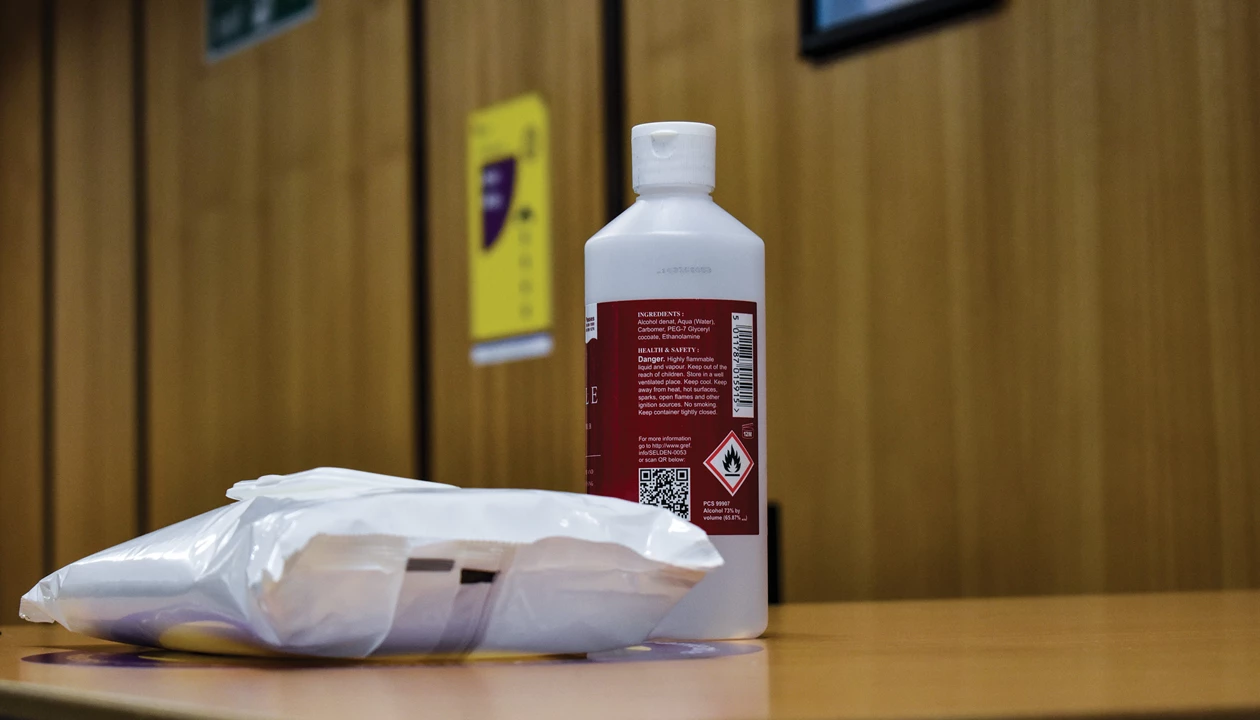The UK has proposed new chemical legislation that would lean on other countries’ rulings.
The reform may help avoid administrative duplication as the government establishes its own regulations after Brexit.
Critics worry that the new rules may allow dangerous substances to be authorized.
A public consultation on the UK government’s proposal to base some of its chemical approvals on the work done by “trusted foreign jurisdictions” closed earlier this month. But experts question how decisions will be made to avoid dangerous substances being imported, manufactured, and used domestically.
The Labour government has presented the proposal as part of a wider policy to make the British economy more competitive by “reducing costs to business.”
The proposal, presented by the Health and Safety Executive (HSE), states that “a list of countries, jurisdictions and other bodies would be deemed trusted jurisdictions where it can be established that regulatory standards for biocides are similar to and at least as high as those in Great Britain.” While government approval through a current two-step process for other chemicals is considered rather “straightforward,” the proposal to recognize international approvals would significantly streamline the procedure for biocides.
The proposal comes as the UK presses on in its transition from the European Union’s (EU’s) regulatory framework on chemicals to establish its own regulations since leaving the regional group in 2020.
But experts question how these “trusted” jurisdictions would be selected, with some concerned that these may include countries where dangerous substances are authorized.
A focus on maintaining high standards
Stephanie Metzger, policy adviser at the Royal Society of Chemistry, which contributed comments during the consultation, says she and her colleagues questioned “how other jurisdictions would be evaluated, who will be doing the evaluation, and how will they monitor any changes to ensure their partners are still eligible for the list over time. We want to make sure the partners are still upholding standards we feel are appropriate and that we deem to be high quality and scientifically rigorous.”
She recognizes that “international collaboration is really important, in particular with a partner like the EU that we used to work with quite heavily, and we have high trust in their system.” Working together may also “help align us better with our trading partners and reduce work burdens for our regulators.” The EU remains the UK’s biggest chemicals trading partner.
The “proposals are not intended to lower regulatory standards or reduce the governance of chemicals on the market in GB [Great Britain],” a spokesperson for the HSE tells C&EN in an email.
“The proposal to recognise biocidal approvals granted by other countries (‘trusted jurisdictions’) is intended to remove the duplicative processes (and the associated evaluation costs) in situations where the scientific work required to approve an active substance or biocidal product has already been carried out to an appropriate standard in another jurisdiction.” The HSE “will not regard a jurisdiction as trusted if its regulatory standards are lower than those in Great Britain.”
In July the UK Department for Environment, Food & Rural Affairs published a policy paper on similar lines, saying that when establishing its list of substances of very high concern, authorities “will consider drawing from the regulatory decisions that the EU has made in this area,” which Metzger says signaled an interest by the government to “move towards an approach that is more in line, or able to follow the EU’s lead.”
The HSE email tells C&EN that HSE is currently analyzing responses received during the legislative reform consultation. “Proposals may be subject to the further development of policy . . . including the development of new processes to uphold any changes to the legislative framework,” it says.
Reacting to the reform proposals, Tim Doggett, CEO of the Chemical Business Association (CBA), says that while the industry “welcomes reform and regulation, we do not support a reduction of standards. We are very much for pragmatic reform.”
Chemical & Engineering News
ISSN 0009-2347
Copyright ©
2025 American Chemical Society
